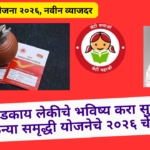Overview
- Summary trials are a condensed form of summons trials.
- The imprisonment sentence in summary trials should not exceed three months.
- Summary trials aim for quick disposal of minor offenses with simplified procedures.
- Covered under Chapter 21 of the Code of Criminal Procedure (CrPC).
Types of Criminal Cases
- Two types of criminal cases:
- Summons Cases – Offenses punishable up to 2 years of imprisonment.
- Warrant Cases – Offenses punishable above 2 years, up to life imprisonment or death.
- Summary trials are applicable to cases punishable up to 2 years and specific offenses listed under CrPC.
Categories of Cases Eligible for Summary Trial
Under Section 260(1) CrPC, nine categories of cases can be tried summarily:
- Offenses punishable up to 2 years of imprisonment (not death or life imprisonment).
- Theft cases (IPC Sections 379, 380, 381) where the stolen property value is ₹2,000 or less.
- Receiving stolen property (IPC Section 411) where the property value does not exceed ₹2,000.
- Assisting in concealing stolen property (IPC Section 414) if the property value is under ₹2,000.
- Lurking house trespass or housebreaking (IPC Sections 454, 456).
- Insult with intent to provoke a breach of peace (IPC 504) and criminal intimidation (IPC 506) punishable with up to 2 years.
- Abetment of any of the above offenses.
- Attempt to commit any of the above offenses if the attempt is an offense.
- Offenses under the Cattle Trespass Act, 1871.
Additional categories:
10. Petty offenses (CrPC Section 206(2)) – Punishable only with a fine up to ₹1,000.
11. State government notified offenses (CrPC Section 206(3)).
12. Offenses under special laws (e.g., Negotiable Instruments Act, Section 143 – related to dishonor of cheques).
Courts Empowered to Conduct Summary Trials
As per Section 260(1) CrPC, the following courts can conduct summary trials:
- Chief Judicial Magistrate (CJM).
- Metropolitan Magistrate.
- First-Class Magistrate (if specially empowered by the High Court).
- Second-Class Magistrate (only if empowered by the High Court, but power is limited).
Procedure for Summary Trials
As per Section 262 CrPC:
- Procedure of summons trial applies, with minor modifications.
- No formal charge is framed.
- The accused is informed of the offense and asked to plead guilty or present a defense (Section 251 CrPC).
Scenarios Based on the Accused’s Plea
- If the accused pleads guilty voluntarily (Section 252 CrPC)
- The magistrate records the plea and may convict in their discretion.
- The magistrate ensures the plea is made without coercion or influence.
- If the accused is absent but pleads guilty in petty cases (Section 253 CrPC)
- The accused can send a plea of guilt via post or messenger.
- The fine (not exceeding ₹1,000) can be paid without appearing in court.
- If the accused contests the charge (pleads not guilty)
- The magistrate proceeds with a trial following summons trial procedures.
- Witnesses may be examined, evidence presented, and the magistrate delivers a verdict.
Key Legal Precedents
- Ran vs. State of Kerala (2010, Volume 3, KLT 348)
- Police officers cannot issue summons; only magistrates can.
- Offense under IPC Section 279 (rash and negligent driving) cannot be treated as a petty offense.
Summary of Key Points
✔ Summary trial = Faster trial process for minor offenses.
✔ No formal charge sheet; procedure follows summons trials.
✔ Certain offenses (e.g., under ₹2,000 theft) are specifically eligible.
✔ Accused may plead guilty in person or via post (in petty cases).
✔ Magistrates have discretion in sentencing, even if the accused pleads guilty.
✔ Metropolitan Magistrates, CJMs, and First-Class Magistrates can conduct trials
For further details you can watch webinar of Hon’ble Justice Ramkumar
Also visit similar best contents
![]()









